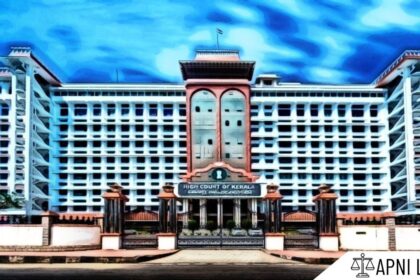Code:
(1) When a person is arrested on a charge of committing an offence of such a nature and alleged to have been committed under such circumstances that there are reasonable grounds for believing that an examination of his person will afford evidence as to the commission of an offence, it shall be lawful for a registered medical practitioner, acting at the request of a police officer not below the rank of sub-inspector, and for any person acting in good faith in his aid and under his direction, to make such an examination of the person arrested as is reasonably necessary in order to ascertain the facts which may afford such evidence, and to use such force as is reasonably necessary for that purpose.
(2) Whenever the person of a female is to be examined under this section, the examination shall be made only by, or under the supervision of, a female registered medical practitioner.
1[Explanation.–In this section and in sections 53A and 54,–
(a) “examination” shall include the examination of blood, blood stains, semen, swabs in case of sexual offences, sputum and sweat, hair samples and finger nail clippings by the use of modern and scientific techniques including DNA profiling and such other tests which the registered medical practitioner thinks necessary in a particular case;
(b) “registered medical practitioner” means a medical practitioner who possesses any medical qualification as defined in clause (h) of section 2 of the Indian Medical Council Act, 1956 (102 of 1956) and whose name has been entered in a State Medical Register.]
Explanation:
This section allows the police to request a medical examination of the accused under specific circumstances. The examination must be conducted by a registered medical practitioner and can involve:
- Physical examination: To assess injuries, physical capabilities, or any other medical condition relevant to the case.
- Psychological evaluation: To determine mental state, competency, or presence of any mental disorder.
- Forensic examination: To collect evidence like DNA samples, bodily fluids, or traces of substances.
The purpose of this examination is to gather evidence that can help establish the accused’s guilt or innocence.
Illustration:
Consider a case where an accused person claims self-defense against an assault charge. The police, suspecting that the accused might have inflicted the injuries on themselves to fabricate the defense, can request a medical examination. The examination might reveal inconsistencies in the injuries or indicate the presence of substances that could contradict the accused’s claim.
Common Questions and Answers:
Q: Is the accused obligated to undergo the medical examination?
A: Yes, the accused is obligated to comply with the police request for a medical examination, as per CrPC Section 53. However, the accused has the right to be present during the examination and can choose a medical practitioner of their choice if they wish.
Q: Can the accused refuse the examination?
A: The accused can refuse the examination only if they have a valid medical reason. However, refusing the examination might raise suspicions and negatively impact the accused’s defense.
Q: What are the rights of the accused during the medical examination?
A: The accused has the right to be informed of the purpose of the examination, to be present during the examination, to be accompanied by a lawyer or family member, and to request a medical practitioner of their choice.











